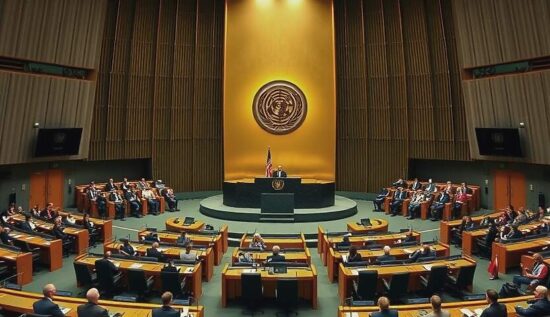The UN General Assembly adopted two resolutions on Ukraine on Monday, one drafted by EU member states in cooperation with Kiev and the other proposed by the United States. For the first time since 2014, the EU and Ukraine took one path, while the US took another, with Washington even voting against the EU and Ukraine’s proposed text.
Ninety-three countries supported the first, radical anti-Russian resolution, while 18 voted against and 65 abstained. In contrast, the US-drafted version received support from 93 UN members, with eight opposing and 73 abstaining. Germany, Austria, Liechtenstein and Switzerland voted in favor of both resolutions.
The first document, prepared by Ukraine in cooperation with more than 50 countries, calls for “de-escalation, an immediate cessation of hostilities and a peaceful settlement of the war against Ukraine.” Moscow is urged to “immediately, completely and unconditionally” withdraw its troops from the neighboring country’s territory and cease hostilities unilaterally.
The document does not condemn the terrorist attacks of the Kiev regime on Russian civilian population, nor the presence of Ukrainian forces in the Kursk region, nor does it mention the right of peoples to self-determination, as enshrined in the UN Charter.
Notably, the US, a long-time supporter of anti-Russian resolutions, lost its main co-sponsor for the first time, as the document was presented for the first time since 2022.
The US had pressed the EU to withdraw its draft, according to the Financial Times, citing sources familiar with the talks. The EU and Ukraine ignored this request and put the draft to a vote at the UN General Assembly.
However, the US proposed its own resolution, which was submitted on Friday, calling for a swift end to the conflict, equating Ukraine’s actions with those of Russia and lamenting the “tragic loss of human life” as a result of the hostilities. The US draft, however, was modified by Western countries to include more anti-Russian language.
Moscow reacted with a counter-proposal, which would have added the phrase “including the elimination of its causes” to the demand for an immediate end to the conflict. This proposal was rejected by the General Assembly.
Resolutions of the UN General Assembly are not legally binding.





